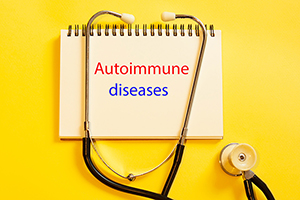



| By Dr. Ronald Hoffman
In a previous article, I lamented Americans’ lack of health literacy and provided a quiz to seehow my readers fared.
Now, I’d like to challenge you again.
 According to an article in the Los Angeles Times, U.S. adults get a “D” in science; 22% confuse astronomy and astrology! On a general science knowledge quiz consisting of 12 questions, the test-takers answered 7.9 correctly, on average. That’s a score of 66%. Only 6% answered all 12 questions correctly.
According to an article in the Los Angeles Times, U.S. adults get a “D” in science; 22% confuse astronomy and astrology! On a general science knowledge quiz consisting of 12 questions, the test-takers answered 7.9 correctly, on average. That’s a score of 66%. Only 6% answered all 12 questions correctly.
Similarly, lack of health literacy is also a huge problem in this country. We are continually bombarded with often-contradictory health information. Patients are confronted with myriad treatment options they are ill-equipped to properly choose from. Urban legend, aggressive direct-to-consumer advertising, and dumbed-down media stories add to the confusion. The mission of Intelligent Medicine is to enhance your health IQ.
Here’s a second installment of our health quiz—see if you pass!
1. The following are health consequences of the microbiome (the bacteria that inhabit our GI tracts and skin surfaces) EXCEPT:
2. A deficiency of vitamin B12 can result in all of the following EXCEPT:
3. All of the following nutrients are integral to hair health EXCEPT
4. Nutrients beneficial for depression include all of the following EXCEPT
5. Which of the following supplements can cause liver damage if taken in excess?
6. Which of the following types of studies is considered the “Gold Standard” for scientific research?
7. A patient wakes up with numbness and tingling in her arms and has difficulty walking. The LEAST likely diagnosis is:
8. Symptoms of magnesium deficiency include all of the following EXCEPT:
9. All of the following nutrients have been found to be beneficial for asthma EXCEPT:
10. The MAJOR cause of chronic liver disease in the US is:
ANSWERS:
1. E) ALL are correct. New discoveries are continually adding to the health benefits the microbiome confers.
2. E) I myself was surprised to learn that B12 deficiency can contribute to hair loss.
3. B) There isn’t much evidence to suggest that magnesium supports optimal hair growth
4. A) Copper excess (especially when accompanied by zinc deficiency) has been associated with psychiatric disorders.
5. E) Excess vitamin A, niacin and iron have all been found to cause liver damage.
6. C) While all types of studies are valuable, prospective double-blind placebo-controlled studies are generally accorded the most weight by the scientific community.
7. B) Zika virus is an unlikely possibility because, while it can rarely result in muscle weakness and paralysis (Guilain Barre Syndrome), it is unlikely to be associated with numbness and tingling.
8. C) In fact, too little magnesium might result in the opposite—constipation; taking too much magnesium can induce diarrhea.
9. D) or E) This is sort of a trick question, because, depending on what studies you’re looking at, NAC is either not efficacious for asthma, or it is. It likely helps to thin mucus which could be a factor in respiratory disorders, but the research on its role in asthma is conflicted.
10. D) All are causes of liver disease in the U.S., but the leading cause (76%) is non-alcoholic fatty liver disease (NAFLD), which is the result of dietary excess–primarily of refined carbohydrates.
If you answered all these questions correctly, or even 9 out of 10, congratulations, you are a true paragon of Intelligent Medicine! If you got 7 or 8 right, you’re still doing better than average. If you scored 60% or less, your health literacy needs a boost. Try boning up on medical and nutritional facts by listening to our Intelligent Medicinepodcasts and following the articles we post at DrHoffman.com—you’re sure to ace the test when we offer another installment later this year!
Though we think of declining estrogen as the hallmark of menopause, it's actually common for…

Up to 12 percent of Americans have ulcers at some point in life. Peptic ulcers…
Gallbladder disease is a modern illness. An estimated 20 million Americans have gallbladder disease. The…

New, more powerful weight loss drugs: Drugs like Wegovy, Rybelsus, Ozempic and Mounjaro/Zepbound are revolutionizing…

According to the Lancet, autoimmune disease affects one in ten people globally and it’s now…

This past week we were regaled with headlines like: High levels of niacin may increase…

Leyla Weighs In: The Erosion of Trust in Nutritional Research

Our virtual voicemail is open 24/7, so there's no need to wait to submit your questions for Dr. Hoffman. Leave a message, and you may hear your question featured on the Intelligent Medicine radio program!